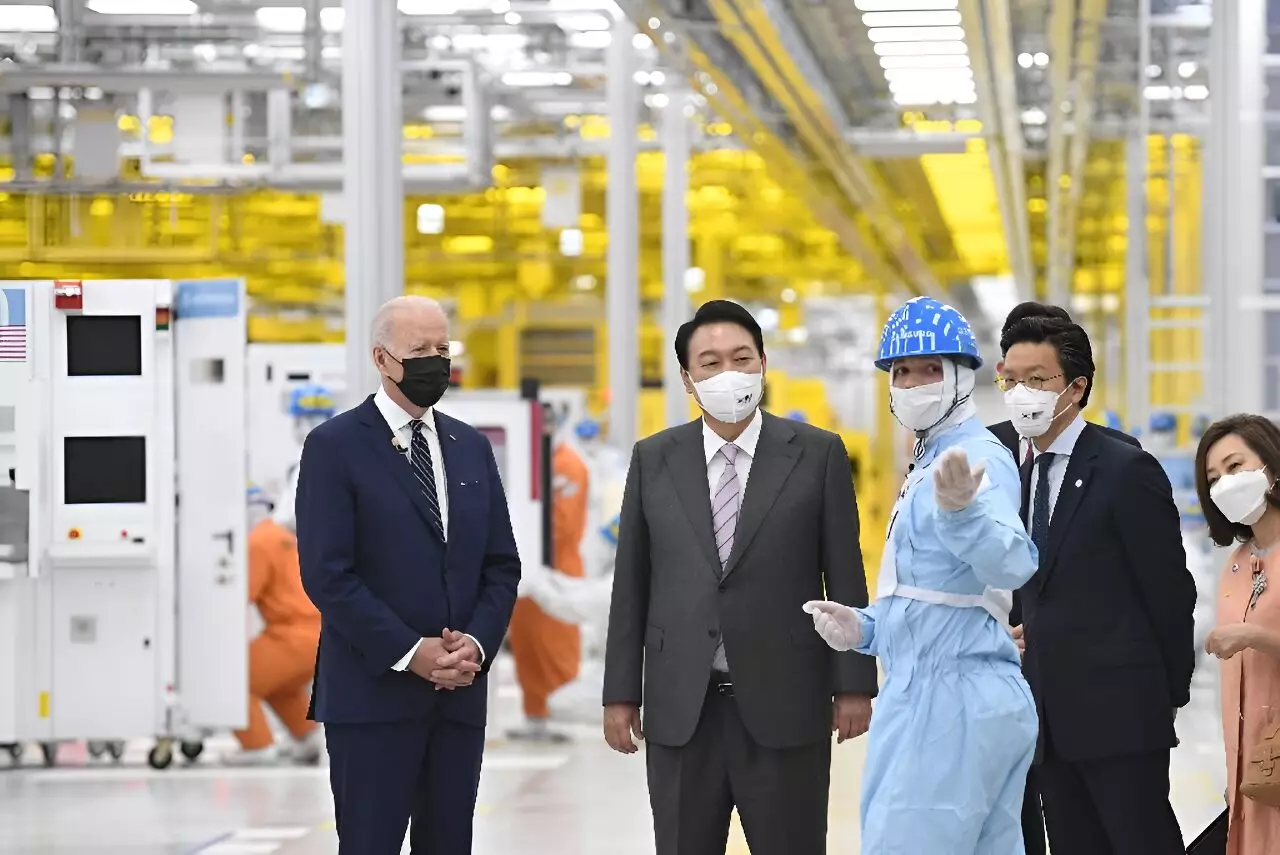South Korea has recently announced a groundbreaking investment plan of almost $7 billion in artificial intelligence by 2027. President Yoon Suk Yeol emphasized the country’s ambition to become a global leader in cutting-edge semiconductors. This move comes as South Korea is home to Samsung and SK Hynix, the top two memory chip manufacturers in the world. These companies produce high-quality memory chips, including the premium high-bandwidth memory (HBM) used in AI hardware.
The semiconductor industry plays a crucial role in South Korea’s export-driven economy. President Yoon highlighted the significance of AI in shaping the future of the semiconductor industry. He stated that the success of the industry depends heavily on advancements in AI technology. In response to this, the South Korean government plans to invest 9.4 trillion won ($6.94 billion) in AI and AI semiconductor fields by 2027. Additionally, a separate 1.4 trillion won ($1 billion) fund will be set up to support the growth of innovative AI semiconductor companies.
Representatives from major tech companies such as Samsung, SK Hynix, Naver, and AI chip startup SAPEON attended the high-powered meeting where President Yoon unveiled the investment plan. The global demand for advanced chips, especially those used in AI systems, has surged in recent years. Countries like South Korea and Japan are strategically positioning themselves to compete with Silicon Valley giants like Nvidia in the AI chip market.
The Geopolitical Landscape
Geopolitical concerns, particularly the US-China rivalry and tensions surrounding Taiwan, have prompted countries like South Korea and Japan to ramp up their domestic chip production. By investing significantly in semiconductor technology, these nations aim to reduce reliance on Western technology and strengthen their semiconductor industries. The semiconductor competition is viewed as an industrial war and a competition between nations for technological supremacy.
International Initiatives
Washington recently announced subsidies of up to $6.6 billion to encourage Taiwanese chip giant TSMC to manufacture advanced products in the United States. Japan also unveiled subsidies worth $3.9 billion to revive its semiconductor industry. Similarly, China has been nurturing its domestic chip industry to reduce dependence on Western technology. These initiatives reflect a global trend of countries investing heavily in semiconductor technology to secure their technological future.
Semiconductors are South Korea’s primary export, accounting for a significant portion of the country’s total exports. In March, semiconductor exports reached $11.7 billion, the highest in nearly two years. This demonstrates the industry’s importance to the South Korean economy and its potential for further growth and innovation in the future.
Overall, South Korea’s ambitious investment in artificial intelligence and semiconductor technology marks a significant step towards global leadership in the technology sector. By focusing on innovation, competition, and strategic partnerships, the country aims to solidify its position as a key player in the rapidly evolving semiconductor industry.


Leave a Reply